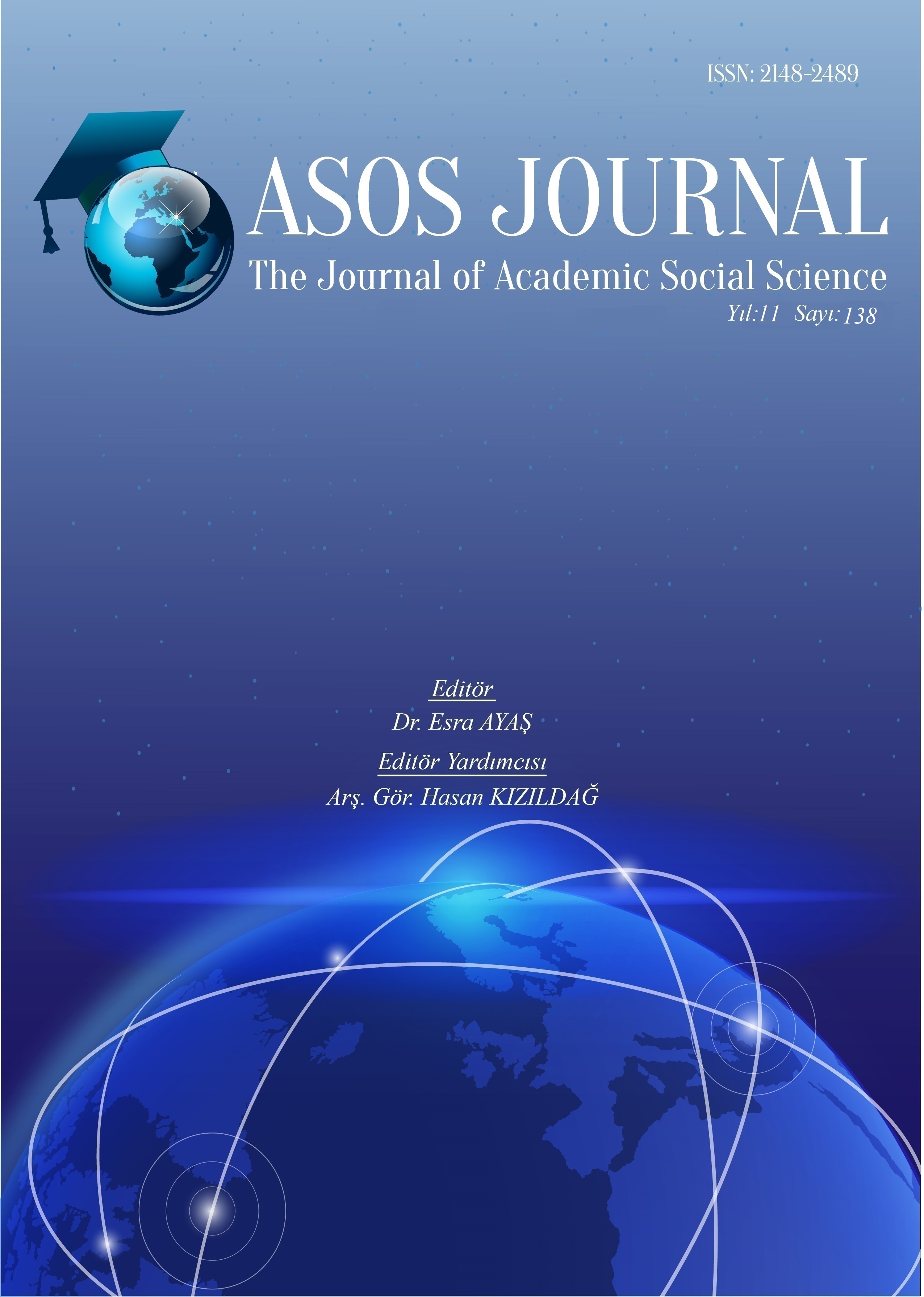Author :
Abstract
Etik, neyin doğru ve iyi olduğu, neyin yanlış ve kötü olduğunu araştıran ve derinlemesine irdeleyen, bireyin yaşam amacını sorgulamasını sağlayan bir özelliğe sahiptir. Liderlik ise kişinin ideal özellik, beceri ve yeteneklere sahip olarak çevresindekileri etkileyebilme düzeyini ifade etmektedir. Toplumsal organizasyonların yaygınlaşması ve sosyo kültürel ilişkilerin gelişmesi nedeniyle, günümüzde liderlik ile ilgili çalışmalarda artış meydana gelmiştir. Bunlardan biri de etik liderliktir. Etik liderlik ise doğru eylemi gerçekleştirme, diğerlerini düşünme, şeffaflık gibi özellikleri gerektirmektedir. Bu araştırmada öğretmenlerin etik liderlik algılarının incelenmesi amaçlanmıştır. Bu amaçla araştırmada nicel araştırma yöntemlerinden betimsel araştırma ve tarama modeli kullanılmıştır. Araştırmanın evreni 2014- 2015 eğitim öğretim yılında Trabzon ilinde görev yapan öğretmenler oluşturmaktadır. Araştırmanın örneklemi basit tesadüfi örnekleme tekniği ile belirlenen 314 öğretmen oluşturmaktadır. Okul yöneticilerinin, etik açıdan liderlik düzeylerini belirlemek amacıyla Etik Liderlik Ölçeği ve okulların örgütsel güven düzeyini belirlemek için “Örgütsel Güven Ölçeği” kullanılmıştır. Araştırma verilerinin analizinde SPSS22 veri analiz programı kullanılmıştır. Araştırma verilerinin normal dağılım göstermesi nedeniyle analizlerde parametrik istatistiksel teknikler kullanılmıştır. Araştırma sonucunda kadınların iklimsel liderlik rolleri daha yüksek iken, genel olarak erkeklerde etik liderlik düzeylerinin daha yüksek olduğu görülmüştür. Ayrıca branş değişkeni bakımından etik liderlik puanları arasında farklılık bulunmamaktadır. İl merkezindeki okullarda çalışan öğretmenlerin liderlik algısı düzeyleri daha yüksektir.
Keywords
Abstract
Ethics has a feature that investigates what is right and good, what is wrong and bad, and examines it deeply, enabling the individual to question his life purpose. Leadership, on the other hand, refers to the level of being able to influence the people around him by having ideal characteristics, skills and abilities. Due to the spread of social organizations and the development of socio-cultural relations, there has been an increase in studies on leadership today. One of them is ethical leadership. Ethical leadership, on the other hand, requires characteristics such as taking the right action, thinking of others, and transparency. In this study, it was aimed to examine the ethical leadership perceptions of teachers. For this purpose, descriptive research and survey model, which is one of the quantitative research methods, was used in the research. The universe of the research consists of teachers working in Trabzon in the 2014-2015 academic year. Sample of the research consists of 314 teachers determined by simple random sampling technique. The Ethical Leadership Scale was used to determine the ethical leadership level of school administrators and the “Organizational Trust Scale” was used to determine the organizational trust level of schools. SPSS22 data analysis program was used in the analysis of the research data. Because of the normal distribution of the research data, parametric statistical techniques were used in the analysis. As a result of the research, it was seen that while the climatic leadership roles of women were higher, the ethical leadership levels of men were higher in general. In addition, there is no difference between ethical leadership scores in terms of branch variable. The leadership perception levels of the teachers working in the schools in the city center are higher.





